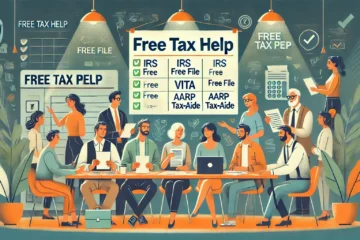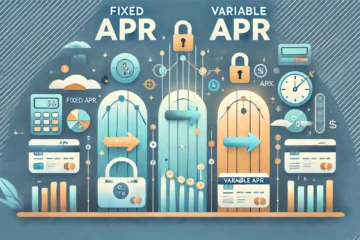The holidays are a time for family, food, and celebration—but they can also bring money stress. Caught up in the joy of giving, many of us spend more than we plan. In fact, 36% of Americans took on an average of nearly $1,200 in holiday debt in 2024 [1]. Starting the new year with credit card balances can feel overwhelming, but it doesn’t have to take over your finances.

For Hispanic families, the holidays often mean celebrating traditions like Nochebuena, las posadas, or Día de los Reyes. These moments create beautiful memories but can lead to financial strain if credit cards do the heavy lifting. If this sounds familiar, take a deep breath—you’re not alone. The good news is that with some thoughtful planning and self-compassion, you can tackle holiday debt while rethinking your spending habits for the future.
Step 1: Let Go of Guilt
Before diving into strategies, give yourself permission to let go of guilt. The holidays are about love, and sometimes that means spending more than planned. Instead of dwelling on the past, think about what you can do now. Just admitting your debt is a big step forward!
Step 2: Assess Your Situation
Write down how much you owe, interest rates, and minimum payments for each account. While this might feel scary at first, it’s an essential step that sets the stage for informed decisions. Next, look at your budget to see how much you can realistically pay toward your debt every month.
Step 3: Pick a Payoff Strategy
Having a plan can make paying off debt feel less overwhelming. Here are two popular methods:
- Snowball Method: Pay off your smallest debt first for quick wins that boost motivation.
- Avalanche Method: Prioritize high-interest debts to save the most money in the long run.
Both approaches work (read more about them in this post), so choose the one that feels right for you. Tools like a debt payoff calculator can help you see the benefits of each strategy.
Step 4: Boost Your Income
Extra cash can help you pay off debt faster. Hispanic families are known for creativity and hard work. Could you sell homemade goods or offer services? Think about your hobbies—cooking, crafting, or tutoring could all bring in extra money. Every little bit helps!
Step 5: Explore Interest-Reducing Options
If high-interest rates are making it difficult to see progress, explore tools to reduce them:
- Balance Transfer Cards: Transfer your balance to a card offering 0% APR for an introductory period, but aim to pay it off before the promotion period ends.
- Debt Consolidation Loans: Personal loans can combine multiple balances into a single payment with a fixed interest rate, simplifying your finances and potentially lowering your overall costs.
These options can lighten your financial burden and give you breathing room.
Step 6: Adjust Spending Habits
Small changes in spending can free up money for debt payments:
- Cook more at home instead of dining out.
- Pause non-essential subscriptions or purchases.
- Redirect holiday bonuses or tax refunds toward your debt.
These minor changes don’t require huge sacrifices and can make a meaningful difference over time.
Step 7: Plan for Next Year
As you pay off debt, think about your holiday spending. What felt worth it, and where could you spend less? Start a savings plan now for future holiday expenses, even if it’s just a little each month. This will help you avoid relying on credit cards next holiday season.
Step 8: Celebrate Wins
Debt repayment is a journey, and each milestone is worth celebrating. Whether it’s paying off one debt or lowering your balance, celebrate! These small wins keep you motivated to keep going.
Final Thoughts: Take Control of Your Finances
Holiday debt doesn’t have to ruin your year. By taking things one step at a time and being patient with yourself, you can regain control. Although financial conversations may be considered private in many Hispanic families, sharing your goals with trusted loved ones can create a supportive network that keeps you accountable.
Each payment, no matter how small, is a step closer to financial freedom. Remember, progress isn’t about perfection—it’s about persistence. Start by now, and keep moving forward. You’ve got this!


0 Comments